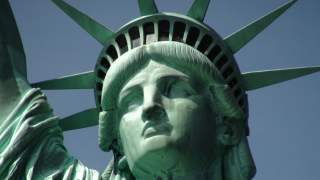A Conservative Pathway for Immigration Reform
"The United States is both a nation of laws and a nation of immigrants. There is no need to sacrifice either of these concepts in pursuit of the other."
The first steps on this path start with the president, whose constitutional duty it is to “take Care that the Laws be faithfully executed,” not just when he agrees with them. Once President Obama, or a future president, proves his dedication to enforcing the law, then, and only then, should Congress act to make further reforms.
The United States is both a nation of laws and a nation of immigrants. There is no need to sacrifice either of these concepts in pursuit of the other. By fulfilling its duty to uphold the rule of law, the executive branch can allow the legislative branch—the branch entrusted with “establish[ing] a uniform rule of naturalization”—to properly debate reforms to the U.S. immigration system, trusting that the executive branch will carry out and administer U.S. laws with fidelity and alacrity.
This is the vision that conservatives should rally around for immigration reform. It is fair, upholds the rule of law and supports the U.S. economy. Now is the time for real leadership on immigration. It is time for conservatives to seize the mantle and articulate a fair, just and constructive vision for the future of the U.S. immigration system.
Derrick D. Morgan is the Vice President for Economic Freedom and Opportunity at The Heritage Foundation. Morgan directs all research on economic issues, including the work of four major policy centers at Heritage: the Roe Institute for Economic Policy Studies, the Center for Data Analysis, the Center for Trade and Economics, and the Chief Economist’s Office.
David Inserra is a research associate in The Heritage Foundation’s Allison Center for Foreign and National Security Policy, specializes in homeland security issues, including cyber and immigration policy, and the protection of critical infrastructure.
Image: Flickr/thebridge/CC by 2.0

